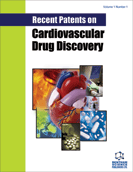Abstract
Cardiac transplantation is a time-honored therapy for end stage heart disease for a select group of patients. The advances in recent years have increased mean survival to 12 and 13 years. The probability of survival after heart transplantation at one, five and ten years are 80%, 70% and 60% respectively. Calcineurin-inhibitors (CNIs) based regimes have been the corner stone of medical therapy in these patient populations. They have reduced the amount of rejections but with considerably increased toxicities to therapies that decreases long-term patient survival. Proliferation Signal Inhibitors or mammalian target-of-rapamycin inhibitors (PSI/mTOR) are a new class of agents that have been extensively used recently to limit these toxicities. Sirolimus and Everolimus are two such drugs. PSI/mTOR work syngeristically with CNIs or have been as primary immunosuppressant ’ s for patients who do not tolerate or have developed side effects to calcineurin inhibitors. This current article will discuss about sirolimus and its use in heart transplant patients along with outlining some recent patents.
Keywords: Sirolimus, everolimus, heart transplant, calcineurin inhibitors, proliferation signal inhibitors, &, mammalian targetof-rapamycin inhibitors
 7
7


